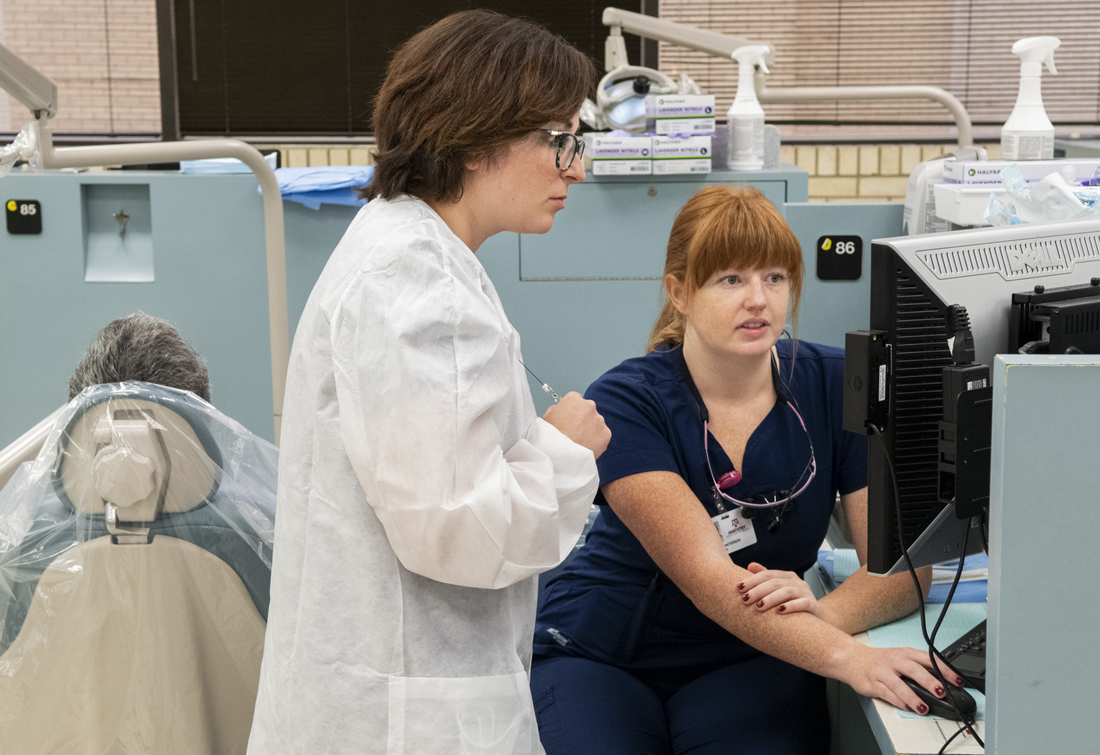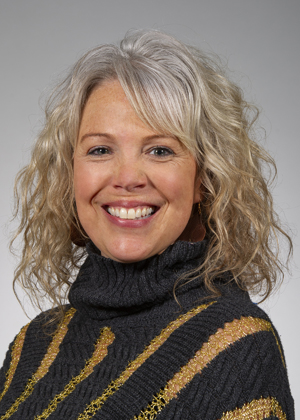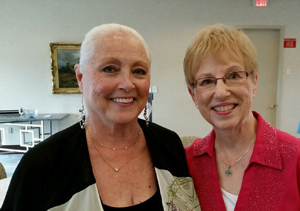Caruth can-do

We’ve all had that one teacher whose impact was profound. Dental hygiene alums Glenna Johns ’65, ’77, ’99 and Leigh Ann Wyatt ’96, ’14 give extra credit to their adjunct faculty members. For Wyatt, that was Johns.
“Glenna was one of the reasons I decided I wanted to teach…just by
 the way she taught,” says Wyatt, executive director and program director at Caruth School of Dental Hygiene. “She was so kind, and you didn’t have to be scared to make a mistake around her.”
the way she taught,” says Wyatt, executive director and program director at Caruth School of Dental Hygiene. “She was so kind, and you didn’t have to be scared to make a mistake around her.”
Both she and Johns were part-time adjunct faculty members for many years. Johns likewise gives kudos to the inspiring professionals who taught her clinical courses years ago.
A few months ago, when Johns showed up in former student Wyatt’s Texas A&M College of Dentistry office, her presence was gift enough. Yet her generosity took an unexpected turn: Johns and classmate Kathleen O’Neill-Smith surprised Wyatt with a plan to give back to adjunct faculty members.
An endowment effort was underway, they told her, and was already receiving generous donations. When fully funded, the endowment would underwrite continuing dental hygiene education for part-time faculty members.
“I was speechless, and I just sat at my desk, stunned. I thought, ‘This has been such a missing part of what we’ve needed,’” Wyatt says.

When Johns and O’Neill-Smith mulled over how they could gift their beloved dental hygiene school, Johns thought back to when she had transitioned from dental hygiene practice to teaching at Caruth. She had dental hygiene skills, she says, but she had to figure out the teaching aspect. Unfortunately, the school didn’t have the funds to assist in that process.
“There was really nothing available for us as part-time faculty members, and yet we contributed so much to the department,” she says. “You’ve got all the skills you need to practice, but you don’t have all the skills you need to teach. We’re now making sure adjunct members are able to take professional development courses to grow and network with other educators.”
For several years, Wyatt says she filled in teaching gaps for her adjunct faculty members with informal mentoring that she tailored to their needs. Without the proper funding, she could only dream of offering them professional development courses.
Wyatt, who was named Teacher of the Year in 2016, 2011 and 2001, has plenty of ideas about which development programs she can offer her part-time faculty. She already has in mind certain areas that will be immediately beneficial.
“All of our adjunct faculty are low-hanging fruit for education,” she says. “They just need investment in dental hygiene education conferences and networking.”
For just $300 each, she says, adjunct faculty members also could partake in eight-week, online American Dental Education Association sessions for dental hygiene educators. Each week covers pertinent issues in teaching dental hygiene students, including how to handle conflict, form a mission statement and how to go about building a teaching legacy that will be impactful, unique and memorable..
“So this would give them some ideas, a taste of what it would be like to go further in their education,” she says, “and also give them some practical solutions to things they’re wondering about now.”
Other possible educational opportunities include some outside a dental hygiene focus. Also, sending adjunct faculty to an ADEA conference for about $1,800 would be worth every penny, she says, “letting them see what it’s like to be with thousands of other educators and hearing keynote speakers and being able to pick from different sessions what interests them.”
Wyatt vividly remembers the bumpy transition she experienced as a new adjunct faculty member. She speculates that if she had been offered professional development courses then, she might have transitioned to a full-time faculty position much sooner.
“You are just sort of thrown in and you go off of what you experienced from your clinical instructors – what they did well, what you wanted to emulate. I think that’s where I really learned,” she says.
Looking ahead, Wyatt is already considering the endowment’s potential impact on the dental hygiene educator shortage, especially if her adjunct faculty’s recent reaction to the fund is any indicator.
“When they found out there was going to be money for them, their morale was immediately boosted. All of a sudden, they felt more important,” she says. “It was kind of the missing piece to the informal mentoring that I was trying to launch. Money is opportunity, and this is going to equal great opportunities.”